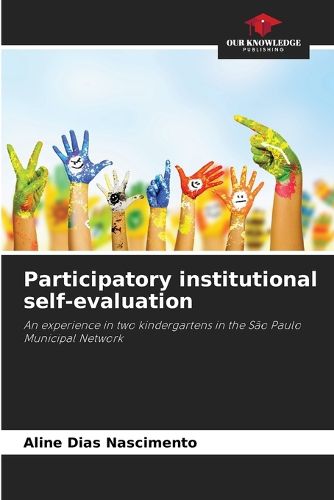Readings Newsletter
Become a Readings Member to make your shopping experience even easier.
Sign in or sign up for free!
You’re not far away from qualifying for FREE standard shipping within Australia
You’ve qualified for FREE standard shipping within Australia
The cart is loading…






The research describes and analyzes an experience of participatory self-evaluation in two Municipal Early Childhood Education Centers (CEIs) in Sao Paulo. The experience was based on a process of applying the document Indicators of Quality in Early Childhood Education in Sao Paulo (2015). The document's methodology calls for the presence of all those involved - family, community and school teams - at self-assessment meetings and when drawing up action plans, in the quest to improve the quality of care in educational units. Our aim was to see how participatory institutional self-assessment contributed to the collective process of discussing the quality of early childhood education. In addition to the perceptions and expectations of the individuals, the context of the application made it possible to analyze the influence of the environment and the mobilization of the subjects in relation to the discussion on quality. The results show that, despite the limitations observed in the two nurseries, and taking into account the differences between the experiences, the proposal for participatory self-evaluation offers important potential for stimulating the construction of a negotiated quality, which includes the active presence of family members in the nursery.
$9.00 standard shipping within Australia
FREE standard shipping within Australia for orders over $100.00
Express & International shipping calculated at checkout
The research describes and analyzes an experience of participatory self-evaluation in two Municipal Early Childhood Education Centers (CEIs) in Sao Paulo. The experience was based on a process of applying the document Indicators of Quality in Early Childhood Education in Sao Paulo (2015). The document's methodology calls for the presence of all those involved - family, community and school teams - at self-assessment meetings and when drawing up action plans, in the quest to improve the quality of care in educational units. Our aim was to see how participatory institutional self-assessment contributed to the collective process of discussing the quality of early childhood education. In addition to the perceptions and expectations of the individuals, the context of the application made it possible to analyze the influence of the environment and the mobilization of the subjects in relation to the discussion on quality. The results show that, despite the limitations observed in the two nurseries, and taking into account the differences between the experiences, the proposal for participatory self-evaluation offers important potential for stimulating the construction of a negotiated quality, which includes the active presence of family members in the nursery.